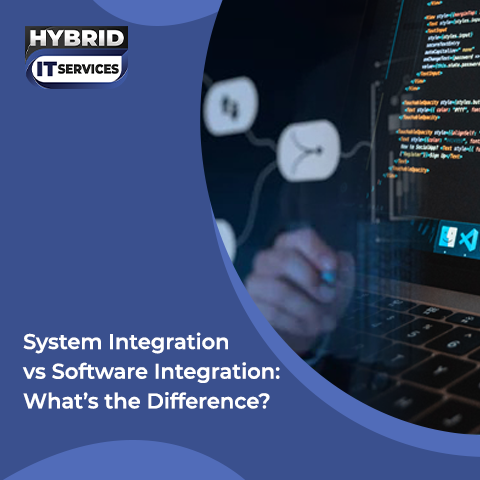Effective communication is vital. As technology advances, so do the methods we use to communicate. One significant development in this area is the Voice Over Internet Protocol (VOIP) system. VOIP has revolutionized business communication by offering a flexible, cost-effective, and efficient alternative to traditional phone systems. At Hybrid IT Services let’s explore what a VOIP system is, its benefits for business communication, and how to implement it.
What is a VOIP System?
A VOIP system is a technology that allows voice communication and multimedia sessions over the Internet. Instead of using traditional phone lines, VOIP converts voice signals into digital data packets and transmits them over an internet connection, you may further read “How much does VOIP cost”. This technology enables businesses to make phone calls, hold video conferences, and send multimedia messages using their internet infrastructure.
Benefits of VOIP in Business Communication
The adoption of VOIP systems has numerous benefits for businesses. Here are six key advantages:
1. Cost Savings
VOIP systems can significantly reduce communication costs. Traditional phone systems often involve expensive long-distance charges and maintenance fees. In contrast, VOIP uses the internet, making local and international calls much cheaper. Additionally, businesses can save on hardware costs since VOIP can work with existing computer systems and smartphones. If you need more information, you may also read “VoIP Development and Its Types of Service Providers”
2. Flexibility and Mobility
VOIP systems offer unparalleled flexibility and mobility. Employees can make and receive calls from anywhere with an internet connection, whether they're in the office, working from home, or traveling. This flexibility supports remote work and ensures that employees are always reachable, enhancing productivity and collaboration.
3. Scalability
As businesses grow, so do their communication needs. VOIP systems are highly scalable, allowing companies to easily add or remove lines and features as required. This scalability ensures that the communication system can grow with the business without significant additional costs or disruptions.
4. Advanced Features
VOIP systems come with a range of advanced features that traditional phone systems often lack. These features include voicemail-to-email, call forwarding, video conferencing, auto-attendants, and integration with other business applications like Customer Relationship Management (CRM) systems. These tools enhance communication efficiency and provide a better experience for customers and employees.
5. Improved Call Quality
With a stable internet connection, VOIP systems can offer superior call quality compared to traditional phone lines. Modern VOIP technology uses advanced codecs and error correction protocols to ensure clear and crisp audio, reducing the likelihood of dropped calls and poor sound quality.
6. Unified Communications
VOIP systems support unified communications by integrating various communication methods—voice, video, text, and instant messaging—into a single platform. This integration streamlines communication processes, making it easier for teams to collaborate and share information. Unified communications also reduce the need for multiple communication tools, simplifying IT management and reducing costs.
Implementing a VOIP System
Implementing a VOIP system involves several steps to ensure a smooth transition and optimal performance:
Assess Your Needs
Start by evaluating your business's communication needs. Consider the number of users, required features, and your current internet infrastructure. Understanding these needs will help you choose the right VOIP service provider and plan.
Choose a VOIP Provider
Research and compare different VOIP providers like Hybrid IT Services Arizona. Look for a provider that offers the features you need, reliable customer support, and competitive pricing. Reading reviews and seeking recommendations can also help in making an informed decision.
Ensure Adequate Bandwidth
VOIP systems rely on a stable and fast internet connection. Ensure that your internet service can handle the increased data traffic. You might need to upgrade your internet plan or invest in quality networking equipment to support VOIP effectively.
Configure the System
Once you've chosen a provider, work with them to configure your VOIP system. This process includes setting up user accounts, configuring hardware and software, and integrating VOIP with existing business applications.
Train Employees
Provide training to employees on how to use the new VOIP system. Familiarize them with its features and functionalities to ensure they can make the most of the technology. Proper training will help in a smooth transition and maximize the benefits of VOIP.
Monitor and Optimize
After implementation, continuously monitor the VOIP system's performance. Address any issues promptly and seek feedback from users to identify areas for improvement. Regularly updating and optimizing the system will ensure it continues to meet your business's communication needs.
Conclusion
The VOIP system has brought about a significant transformation in business communication. By understanding what a VOIP system is, recognizing its benefits, and following best practices for implementation, businesses can enhance their communication strategies and stay competitive in today's digital age. Embracing VOIP technology is not just about upgrading a phone system; it's about fostering better collaboration, improving customer interactions, and driving overall business success.






